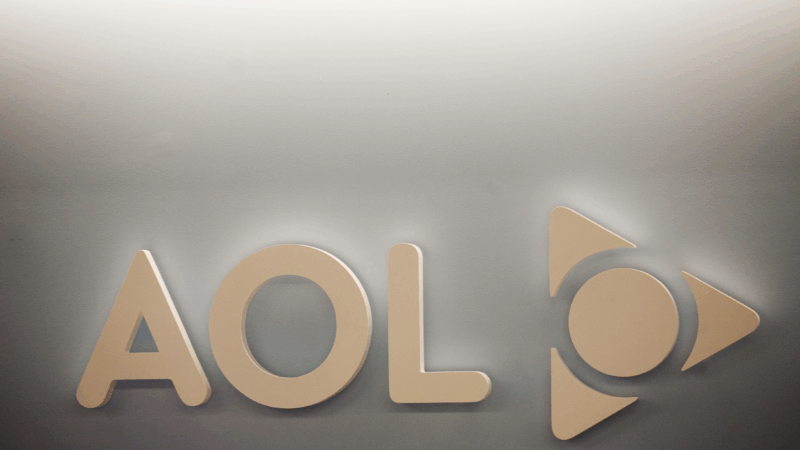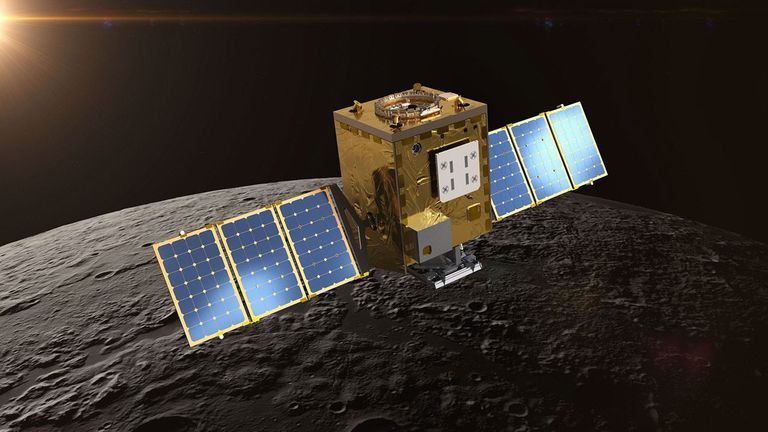Say bye-bye to the beeps and boops of AOL’s dial-up internet service
Beep, bop, boop, boooopp, scrsssshh…
Such was the sound of AOL’s dial-up service, a marker of trying to connect to the internet in the 1990s. Now the company has announced it’s getting rid of dial-up.
“AOL routinely evaluates its products and services and has decided to discontinue Dial-up Internet,” its website says.
The service will run until Sep. 30. NPR’s efforts to reach AOL for comment were unsuccessful.
What is dial-up?
Dial-up uses a modem to convert digital data from a computer into audio signals, which can then travel over standard phone lines, said W. Patrick McCray, a tech historian at the University of California, Santa Barbara.
Users have to plug their computers into a phone jack and install software that allows the computer and dial-up service to communicate.
The process resulted in a robotic, staticky noise.
“In some ways, it was kind of like the sound of the 1990s,” McCray said.
But it had its drawbacks, such as users not being able to use the phone and internet at the same time. It also had a fraction of the speed available in today’s internet landscape. Downloading a song took several minutes, and downloading a movie was unheard of, McCray said.
AOL’s significance on the Internet
AOL rolled out its dial-up service in 1991, when lawmakers were focused on closing the “digital divide,” the idea that people living in poorer or more rural areas would not have equitable access to the internet, McCray said.
The company was known for handing out discs and CDs that gave users several hours of internet access for free. They were so embedded in 1990s American culture that one of those discs now sits in the Smithsonian’s collection. The CDs can be bought in lots on eBay.
Dial-up was considered accessible at the time, as it requires a landline, technology that many Americans already had. However, it has largely been replaced by broadband internet, which does not have as extensive an infrastructure.
As of 2022, 0.1% of American households relied on dial-up to access the internet, according to the Census Bureau’s American Community Survey.
“For those people who live in those rural communities today, they’re going to have to find an alternative, ” McCray said.
AOL did not introduce dial-up, but it became popular because of its ease of use and interface, which included things like news and email on the homepage, McCray said.
AOL says members’ other benefits will not be impacted by the discontinuation of dial-up.
Deadline looms as Anthropic rejects Pentagon demands it remove AI safeguards
The Defense Department has been feuding with Anthropic over military uses of its artificial intelligence tools. At stake are hundreds of millions of dollars in contracts and access to some of the most advanced AI on the planet.
Hillary Clinton calls House Oversight questioning ‘repetitive’ in 6 hour deposition
In more than seven hours behind closed doors, former Secretary of State Hillary Clinton answered questions from the House Oversight Committee as it investigates Jeffrey Epstein.
Chicagoans pay respects to Jesse Jackson as cross-country memorial services begin
Memorial services for the Rev. Jesse Jackson Sr. to honor his long civil rights legacy begin in Chicago. Events will also take place in Washington, D.C., and South Carolina, where he was born and began his activism.
In reversal, Warner Bros. jilts Netflix for Paramount
Warner Bros. says Paramount's sweetened bid to buy the whole company is "superior" to an $83 billion deal it struck with Netflix for just its streaming services, studios, and intellectual property.
Trump’s ballroom project can continue for now, court says
A US District Judge denied a preservation group's effort to put a pause on construction
NASA lost a lunar spacecraft one day after launch. A new report details what went wrong
Why did a $72 million mission to study water on the moon fail so soon after launch? A new NASA report has the answer.







